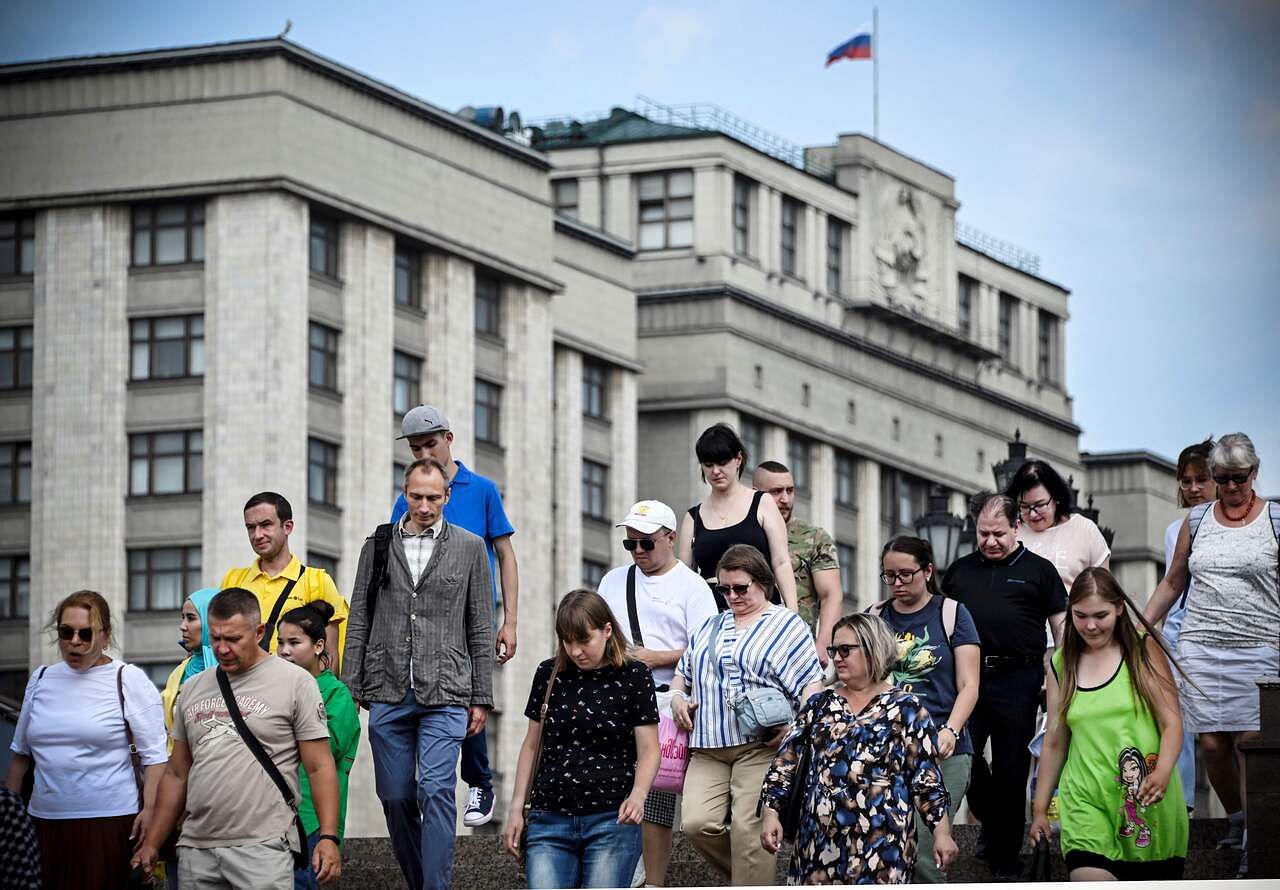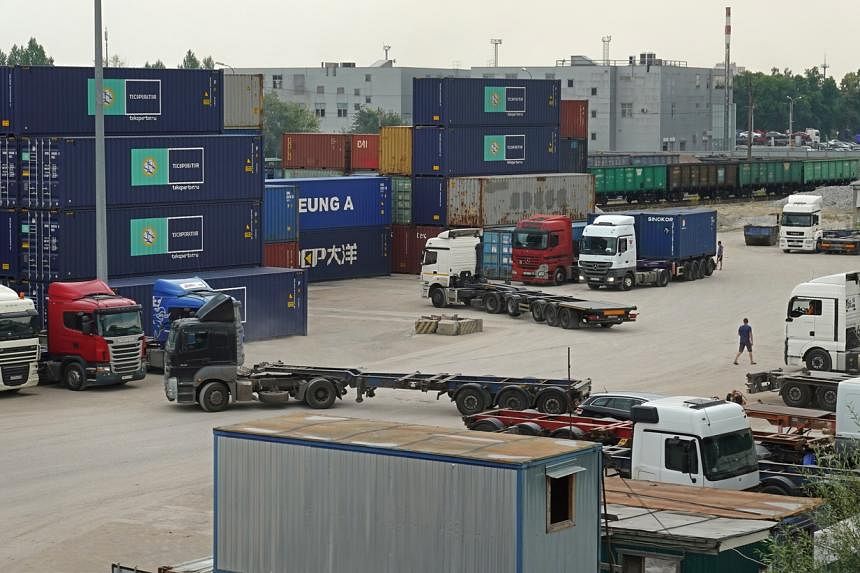MOSCOW (NYTIMES) - The Russian economy contracted steeply in the second quarter as the country felt the brunt of the economic consequences of its war in Ukraine, in what experts believe to be the start of a yearslong downturn.
The economy shrank 4 per cent from April through June compared with a year ago, the Russian statistics agency said Friday (Aug 12). It is the first quarterly gross domestic product report to fully capture the change in the economy since the invasion of Ukraine in February.
It was a sharp reversal from the first quarter, when the economy rose 3.5 per cent.
Western sanctions, which cut off Russia from about half of its US$600 billion (S$823 billion) emergency stash of foreign currency and gold reserves, imposed steep restrictions on dealings with Russian banks, and cut access to American technology, prompted hundreds of major Western corporations to pull out of the country.
But even as imports to Russia dried up and financial transactions were blocked, forcing the country to default on its foreign debt, the Russian economy has proved more resilient than some economists initially expected, and the fall in GDP reported Friday was not as severe as some expected in part because the country's coffers were flush with energy revenue as global prices rose.
Mild for now but not for long
Analysts, though, say the economic toll will grow heavier as Western nations increasingly turn away from Russian oil and gas, critical sources of export revenue.
"We thought it would be a deep dive this year and then even out," Ms Laura Solanko, a senior adviser at the Bank of Finland Institute for Economies in Transition, said of the Russian economy.
Instead, there has been a milder economic decline, but it will continue into next year, putting the economy in a shallower recession for two years, she said.
Russia, a US$1.5 trillion economy before the war started, moved quickly in the days after the invasion to mitigate the effect of sanctions. The central bank more than doubled the interest rate to 20 per cent, severely restricted the flow of money out of the country, shut down stock trading on the Moscow Exchange and loosened regulations on banks so lending didn't seize up.
The government also increased social spending to support households and loans for businesses hurt by sanctions. The measures blunted some of the sanctions' effect. And as the ruble rebounded, Russia's finances benefited from high oil prices.
"Russia withstood the initial sanction shock" and "has been relatively resilient so far," said Mr Dmitry Dolgin, the chief economist covering Russia at Dutch bank ING.
But, he noted, unless Russia manages to diversify its trade and finances, the economy will be weaker in the long term.
Outlook is bleak
Retail trade declined about 10 per cent, the statistics agency said, while wholesale business activity fell 15 per cent.
Mr Michael Bernstam, a research fellow at the Hoover Institution at Stanford University, said the data released Friday were in line with other reports coming out of Russia.
He, too, expects the economy to deteriorate in the second half of this year and then again in 2023.
The outlook for the Russian economy looks bleak. As the war drags on, the country will continue in an economic wilderness as many countries and companies look to permanently end relationships with Russia and its domestic companies.
Businesses will have trouble getting replacement parts for Western-made machines, and software will need updates. Russian companies will need to rearrange their supply chains as imports seize up.
Crucially, the prospects for Russia's energy industry, central to the country's economy, are deteriorating.

The United States and Britain have already banned Russian oil imports, and the country's oil output will fall further early next year when the full effect of a European Union ban on imports comes into effect.
Russia would need to find customers for roughly 2.3 million barrels of crude and oil products a day, which is about 20 per cent of its average output in 2022, according to the International Energy Agency.
So far, countries including India, China and Turkey have absorbed some of the lost trade from Europe and the United States, but it's unclear how many new buyers can be found.
Reliance on Russian natural gas is also being reduced. In the final week of June, total European Union gas imports from Russia were down 65 per cent compared with last year, according to a report by the European Central Bank.
Then, there's inflation
Shortly after the invasion of Ukraine, inflation in Russia soared as households scrambled for goods they expected to become scarce.
In July, inflation was running more than 15 per cent, according to the Russian central bank. Already, though, there are signs inflation is slowing down, and as a result the central bank has slashed interest rates to 8 per cent, lower than they were before the war.
Last month, the bank said business activity did not slow as much as expected, but the economic environment "remains challenging and continues to significantly constrain economic activity".

The bank forecast that the economy will shrink 4 to 6 per cent this year, much less than it originally expected right after the start of the war. That 6 per cent figure also matches the latest update from the International Monetary Fund.
The economy will have a deeper contraction next year and not return to growth until 2025, the central bank said Friday. The bank forecast that inflation would be 12 per cent to 15 per cent by the end of the year.
In the coming months, the challenges to the economy will come from the supply side, as businesses constrained by sanctions try to alter their supply chains to replenish stockpiles of finished and raw goods.
"I don't think the Russian economy is doing well at the moment," Ms Solanko said. But the idea that sanctions and the effect of companies leaving Russia would cause the economy to rapidly collapse was never realistic.
"Economies just don't vanish," she said.

